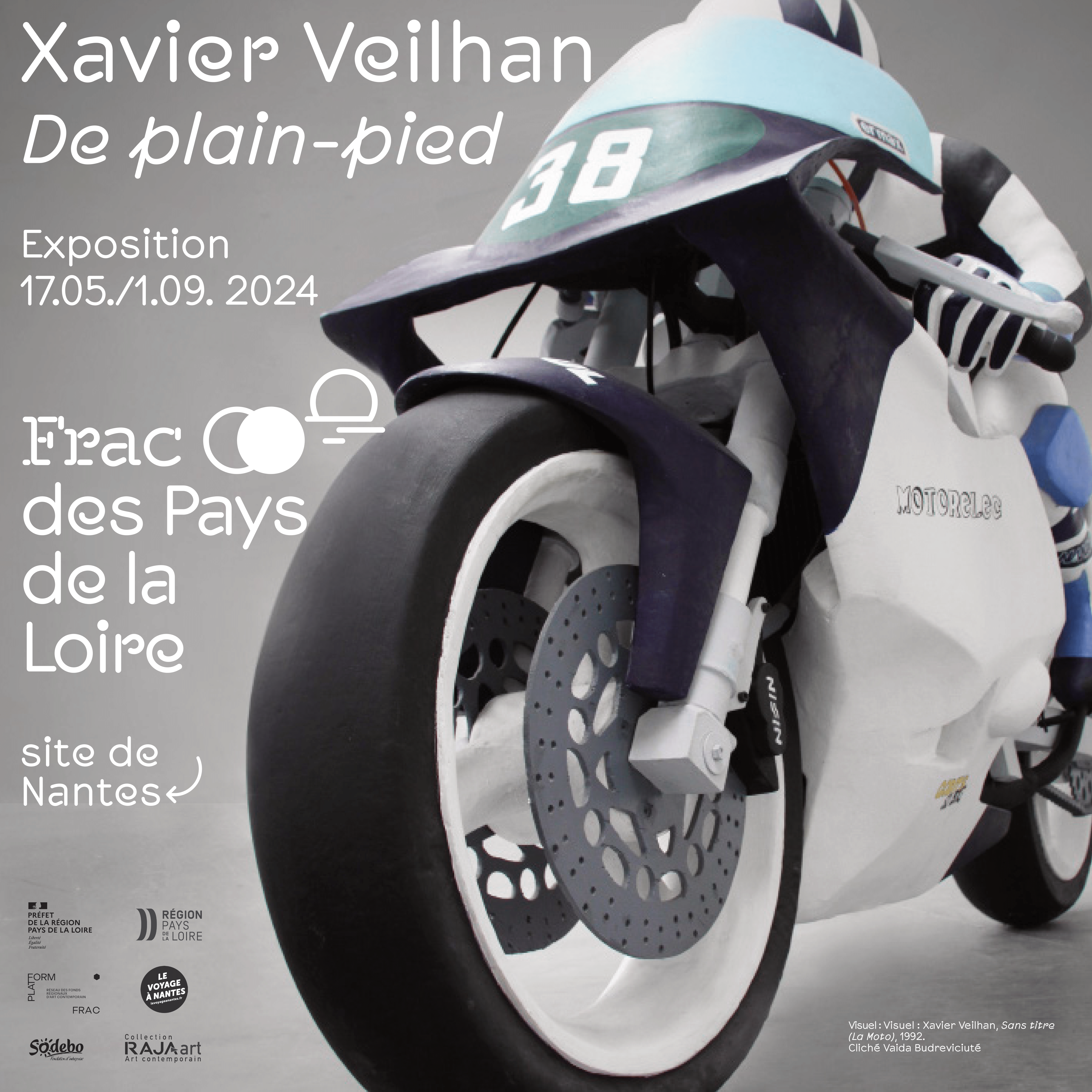DAAR – Sandi Hilal et Alessandro Petti, Entity of Decolonization
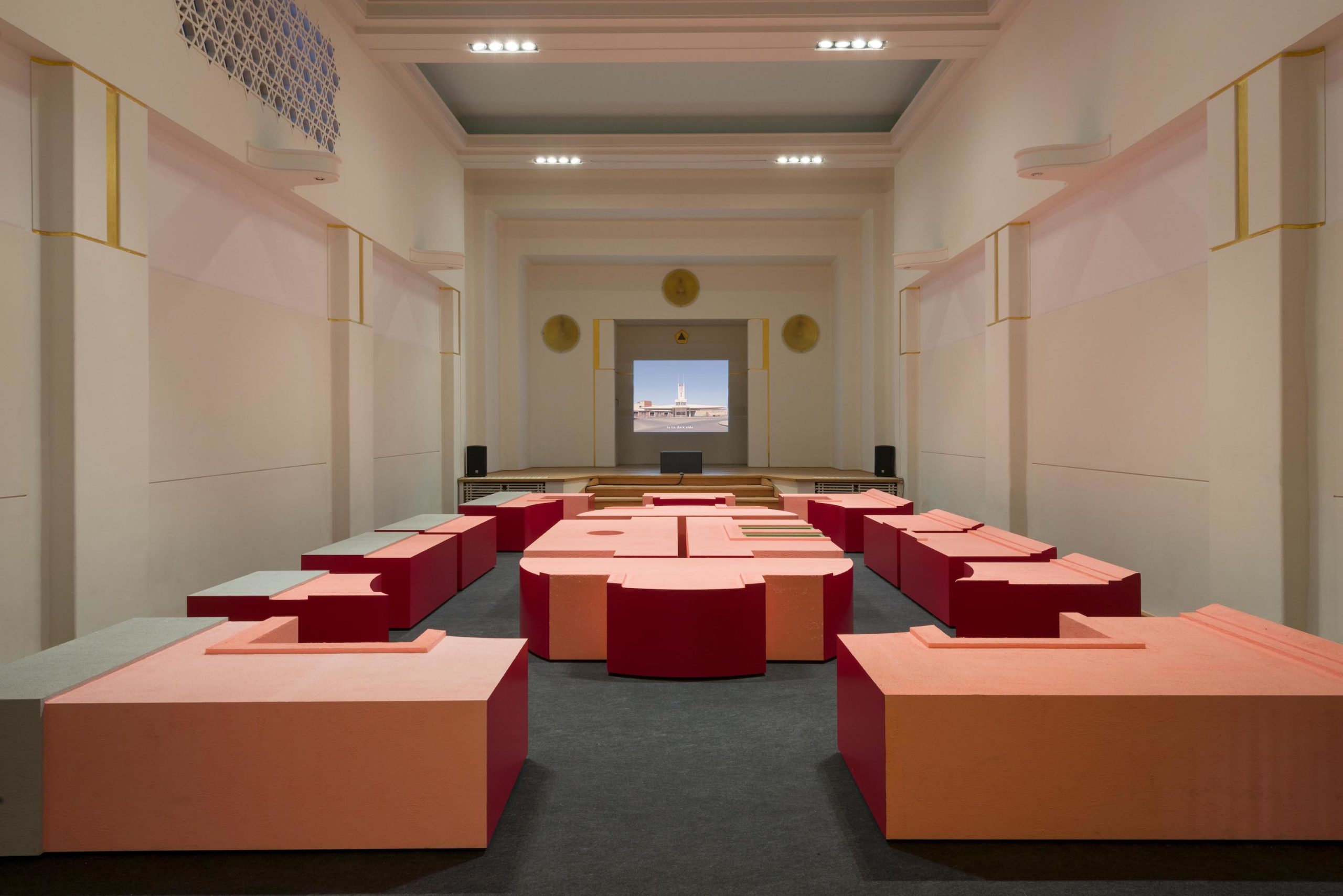
Decolonizing Heritage
On DAAR Entity of Decolonization at La Loge, Brussels
In his seminal lecture Whose Heritage? Un-settling the “heritage”, Re-imagining the Post-nation (1992), Stuart Hall called for the subversion by diasporic communities of the foundational ground on which the process of heritage construction has until very recently proceeded. What kind of heritage is the fascist colonial and modernist heritage? Who has the right to reuse it? These questions are at the center of the exhibition at La Loge by DAAR (Decolonizing Architecture Art Residency), accompanied by curator Matteo Lucchetti. The duo formed by the architects Sandi Hilal and Alessandro Petti, which for years has been developing a practice between art, pedagogy and politics, creating projects which engage with decolonization in different contexts.
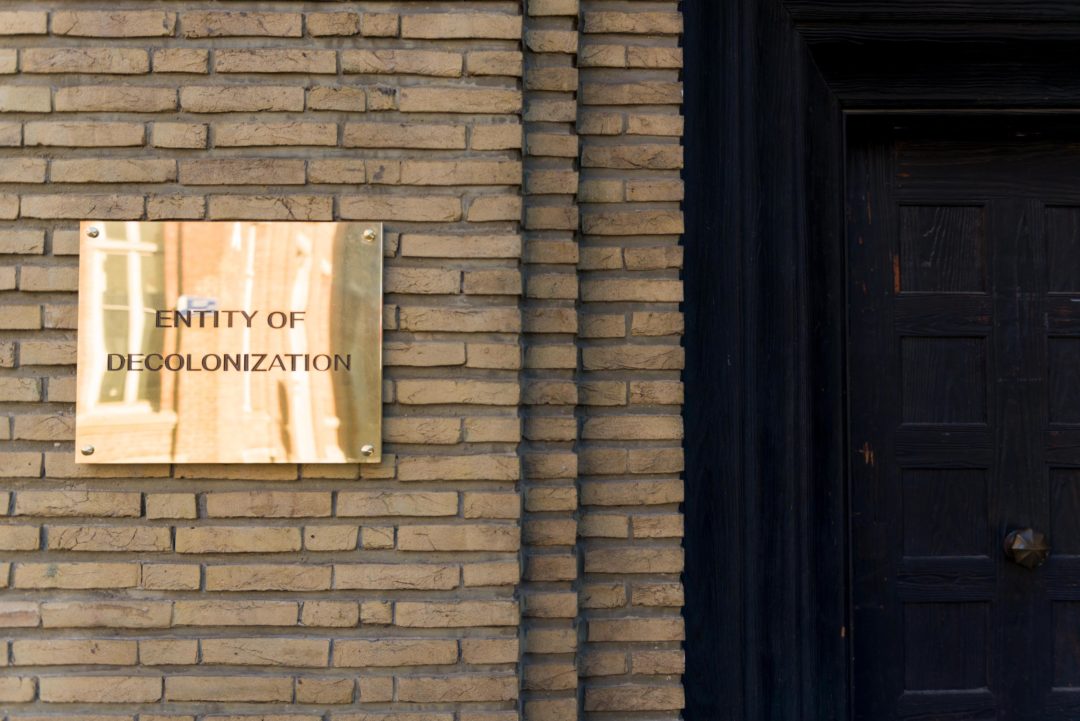
The exhibition presents DAAR’s latest work entitled “Entity of Decolonization” which imagines the possibility of a critical reappropriation and at the same time a subversion of fascist heritage in Italy. The focus of the exhibition is the work conducted by DAAR in Borgo Rizza (in the province of Syracuse) a village built in 1940 by the Ente di Colonizzazione del Latifondo Siciliano (ECLS, Entity of Sicilian Latifundia) based on blueprints of colonial architecture built in italian colonies such as Somalia, Eritrea Libya and Ethiopia. The entity was established by the fascist regime based on the model of the Colonization Authority for Libya, whose work is explored in the slideshow “Architectural Doubles”. It operated in southern Italian territories, considering them empty, underdeveloped and backwards lands to be reclaimed, modernized and repopulated. To this end, the entity inaugurated eight hamlets and as many remained unfinished with the eruption of the second world war and later fell into ruin and disuse. This architecture together with many other monuments, plaques and a toponymy that celebrate the fascist regime remain visible today in Italy and are just one of the signs that the process of de-fasticization of the country is still an ongoing struggle. In 2017, the nomination of Asmara, the capital of Eritrea, as a UNESCO World Heritage Site for its fascist and colonial architecture built during the period of Italian occupation, raised additional fundamental questions on the subject of heritage construction.
The way in which DAAR works on heritage and processes of decolonization is never static but rather discursive, educational and contextual. In 2020, DAAR began a collaboration with the local municipality of Borgo Rizza allowing them to reuse the village’s fascist architectural heritage as a summer school and a proper “Entity of Decolonization”. The school—developed in collaboration with the Decolonizing Architecture Advanced Study course at the Royal institute of Art in Stockholm, the MA in Critical Urbanism at the University of Basel and the municipality of Carlentini—activated site research, organized public events and group discussions on repair and healing in order to collectively reimagine the reuse of space in dialogue with local communities.
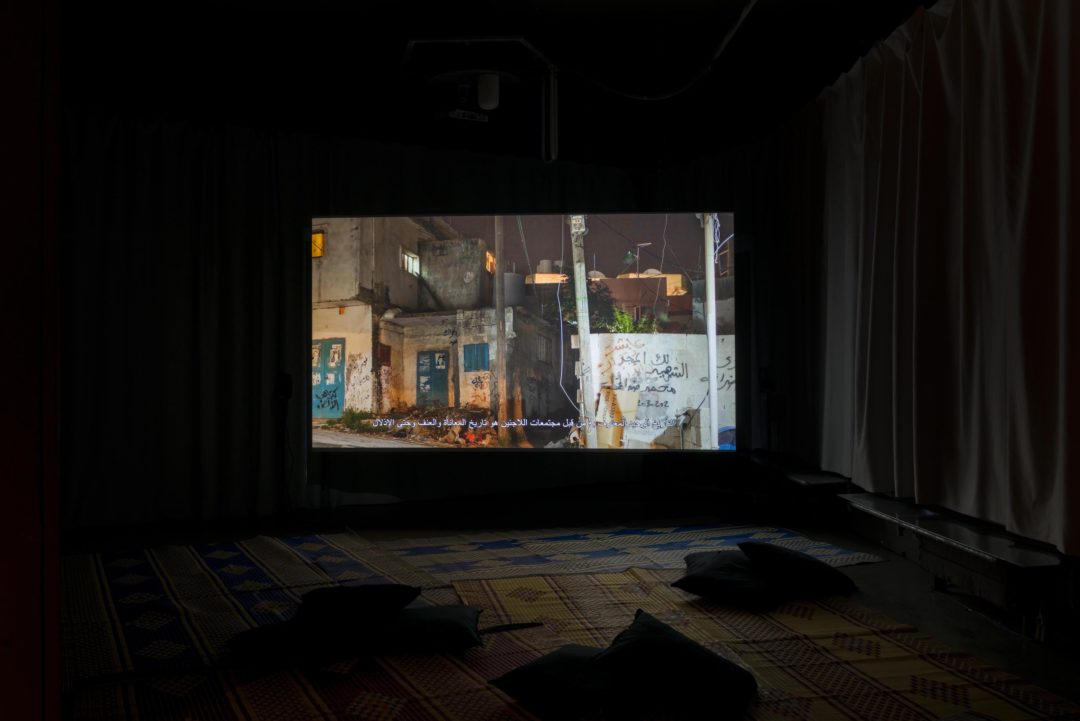
The exhibition at la Loge and the installation in the temple also aims to pursue this pedagogical endeavor. An assemblage of modules which are a scaled reproductions of Borgo Rizza façades become a gathering space for decolonial assemblies—discursive sites where the public is invited to reconsider the social, economical and political legacies of fascist and colonial heritage while collectively imagining new common uses of the installation. In the days of the opening, the activation included individuals – including artists, professors and theorists – as well as representatives of organizations working on anti-black racism and colonial legacies in the city-scape such as members of the working group who authored the Report for the Decolonization of Public Spaces of Brussels. One of them, Georgina Dibua, led the collective on a walk around some of the most important monuments built in colonial times in Brussels across the city center and in the district of Ixelles. What emerged from discussions with the participants during this activation was the need to develop a new vocabulary to reframe issues of privilege, cultural hegemony, as well as the need to develop new decolonial practices and shared alliances.
DAAR’s way of working is imbued by a long experience of working as a collective intelligence across many contexts starting with Campus in Camps, a program run over the course of several years in Palestine, transforming the camp as a site of history and knowledge and implementing participatory methodologies in order to “decolonize knowledge” through exercises of collective unlearning with local communities and international participants. This methodology is reflected by different references such as the Latin American experiences of thinkers such as Ivan Illich and Paulo Freire, and the self-organized educational networks that appeared during the first Intifada as well as the ideas of communal learning by Palestinian philosopher Munir Fashes.
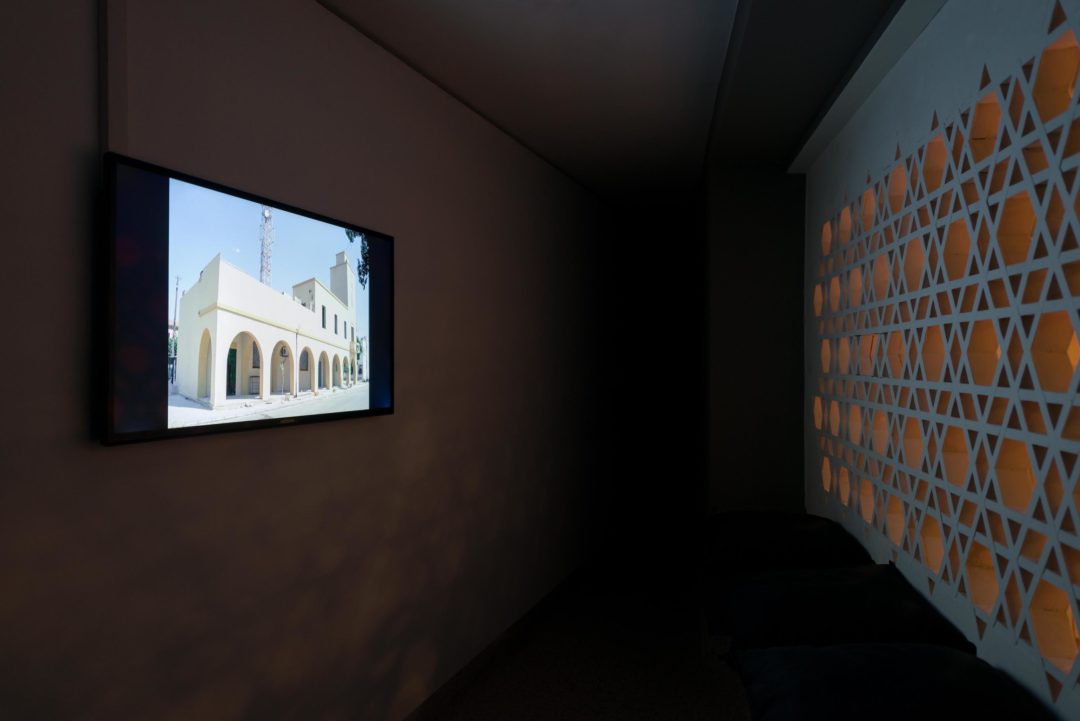
DAAR’s long-term work in Palestine significantly contributed to the re-evaluation of the intangible heritage of refugee camps, in order to include them in the UNESCO World Heritage List. With the project Refugee Heritage (2015-2021), which is explored in the film installed in the top floor of the exhibition, DAAR re-elaborated the concept of the refugee by looking closer at rhetoric of humanitarianism, victimization and displacement, transforming it into an agent of political change. As DAAR writes in the introduction of their book Permanent Temporariness “For some, heritage freezes time, space and culture, reducing buildings to objects for contemplation and consumption. Yet conservation also pertains to the contested space in which identity and social structures are built and demolished. Heritage has become a battlefield where the understanding of culture, history and aesthetics has been and continues to be reshaped.” Heritage is therefore a lens through which to examine the multiple implications of architecture in the process of colonization and a field where a reinvention of the built environment can bring tangible decolonial scenarios and changes into society.
With this exhibition by DAAR La Loge continues its line of inquiry on decolonization and its ecological, racial and social entanglements as well as on alternative ways we can live together initiated with the programs A Common Breath and Constellation for the Future (2021) and continued recently exhibitions such as Reclaiming Places (2021) and In The Womb of the Glass Ship by Mathieu Kleyebe Abonnenc (2022).
______________________________________________________________________________
Head image : Entity of Decolonization by DAAR – Sandi Hilal and Alessandro Petti at la loge Brussel. Courtesy of the artists and la loge. Image by Lola Pertsowsky
Related articles
Playground
by Patrice Joly
GESTE Paris
by Gabriela Anco
On the High Line
by Warren Neidich

